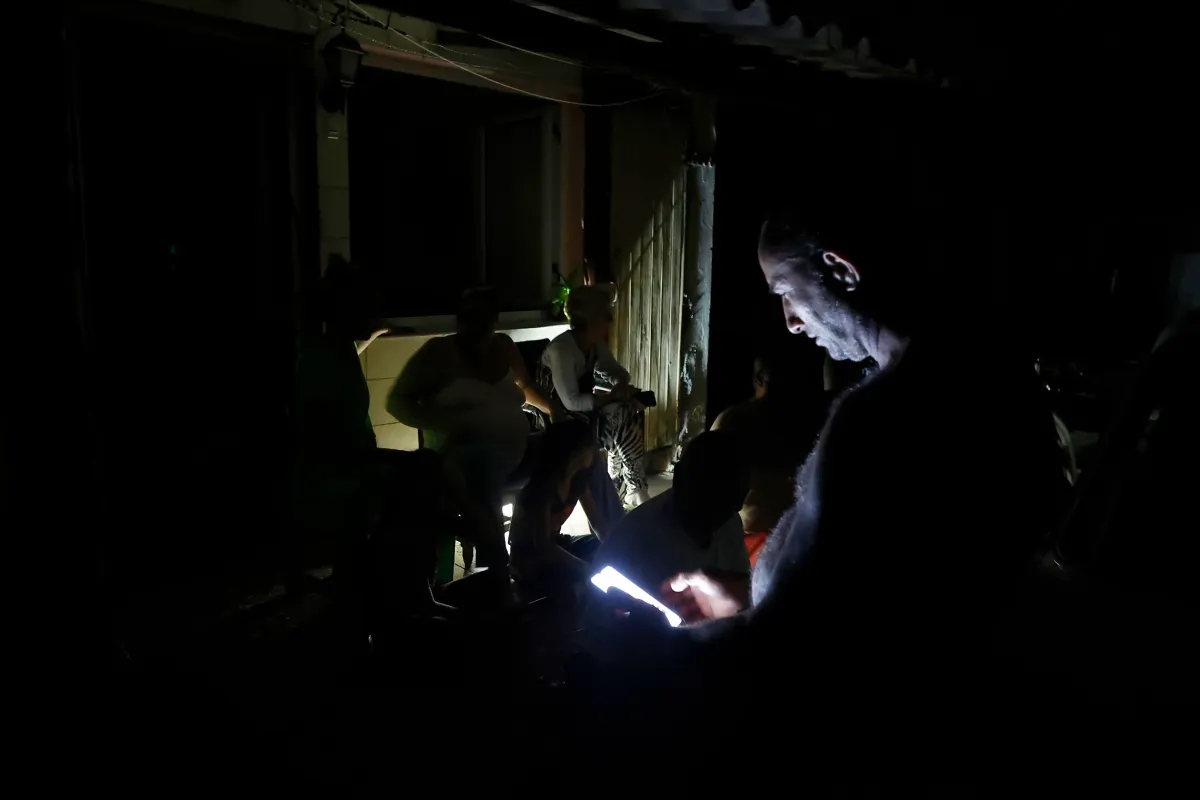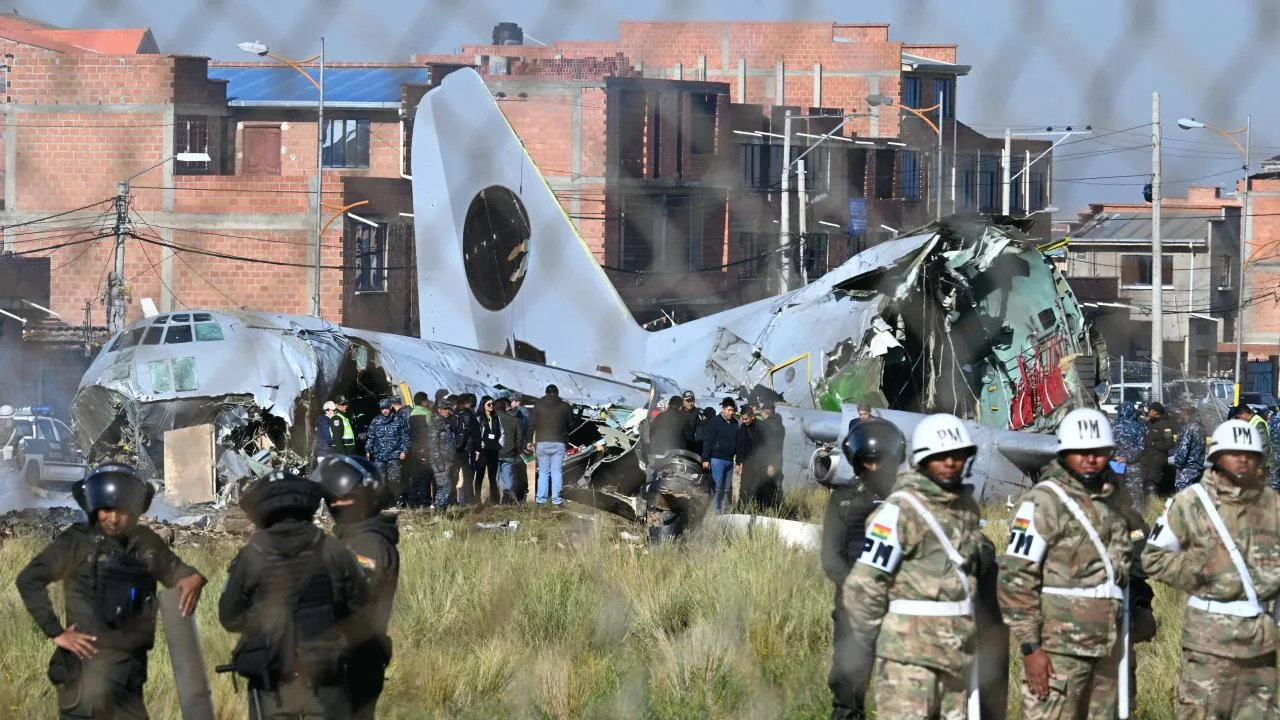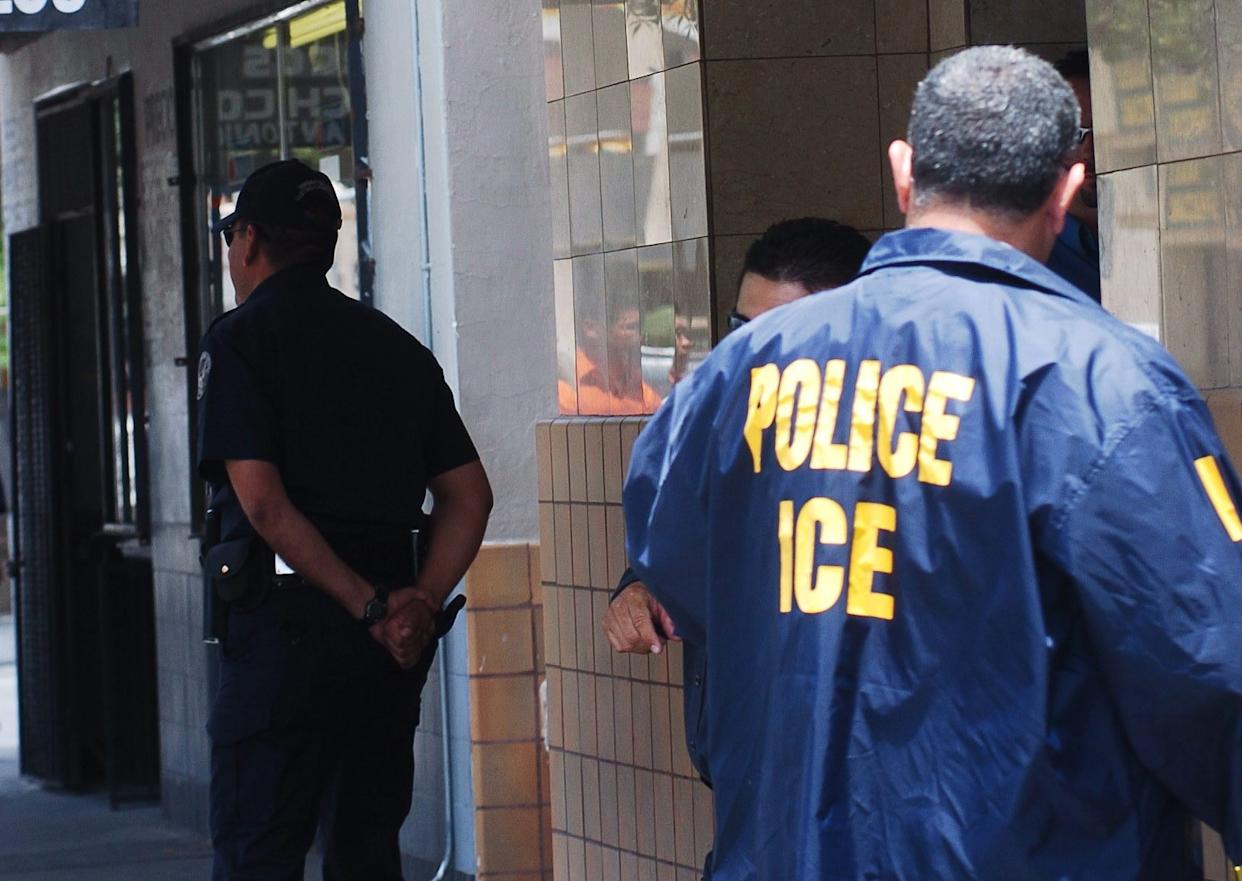International
A third total blackout in Cuba in three days thwarts attempts to recover the service

The third total blackout of Cuba’s National Electric System (SEN) in less than 72 hours has once again frustrated this Sunday attempts to restore a basic service that collapsed three days ago after weeks of exacerbation of an energy crisis that has been brewing for years.
“At this moment, steps are being taken to restore the connection,” Félix Estrada, director of the national cargo office of the company Unión Eléctrica, told state television.
The manager of the state company explained that a strategy is currently being followed to reorganize the country’s electricity generating units by regions and then carry out their start-up.
He said that the objective is to restore the SEN connection in the shortest possible time to gradually restore the service of the approximately ten million inhabitants of the island.
Cause of the third blackout in Cuba
He recalled that the cause of this third blackout occurred due to a “transmission failure” when it had been possible to connect in the same subsystem to Mariel (west) and Holguín (east), separated by more than 600 kilometers.
The first total fall of the system that left the country in “zero national energy coverage” was recorded last Friday, after an “unforeseen” exit from operations of the Guiteras thermoelectric plant, considered key to the stability of the SEN.
This Saturday, the actions carried out to re-energize and recover the SEN failed again, which caused the second total disconnection, and in the last hours of that day the subsystem that had been created in the western half of the island collapsed, so the work had to start again.
The Minister of Energy and Mines, Vicente de la O Levy, acknowledged this Sunday in an appearance that the situation in the electricity system is “very tense.”
Precarious state
But he said that the Government aspires for the SEN to recover within two days the state it had before the first massive blackout and that consequently most consumers will have light again “tomorrow Monday” and that “the last customer may perhaps be receiving (current) next Tuesday.”
The SEN is in a very precarious state due to the shortage of fuel – the result of the lack of foreign exchange to import it – and the frequent breakdowns in obsolete thermoelectric plants, with four decades of operation and chronic lack of investments.
Stocks have been common for years but the situation has worsened in recent weeks. In recent days, days have been recorded with maximum affectation rates of more than 50%, that is, moments when half of the country was simultaneously without electricity.
Affected economy
The frequent blackouts damage the Cuban economy – which in 2023 contracted by 1.9% and boost social discontent in a society affected by an aggravated economic crisis in recent years.
They have also been the trigger for anti-government protests, including those of July 11, 2021 – the largest in decades – those in Nuevitas and Havana in August and September 2022, and those of last March 17 in Santiago de Cuba (east) and other locations.
The last time a similar situation of “zero production” occurred was in September 2022, after the passage of Hurricane Ian with category three through the extreme east of the island. This caused a serious mismatch and the recovery took days.
International
Bolivia Orders Three Investigations Into Deadly Military Plane Crash

Bolivia’s Defense Minister Marcelo Salinas announced Monday that three separate investigations will be conducted into Friday’s crash of a military cargo aircraft at El Alto International Airport, near La Paz, which left at least 22 people dead.
The Hercules aircraft, operated by the Fuerza Aérea Boliviana (FAB), was transporting cash intended for the Central Bank of Bolivia when it overshot the runway after landing from the city of Santa Cruz. The plane reportedly traveled nearly one kilometer beyond the airport perimeter.
The incident sparked chaotic scenes, with individuals attempting to collect scattered banknotes. Authorities detained 51 people in the aftermath, and the government declared three days of national mourning.
Multiple Investigations Underway
The first inquiry is being led by a military board from the Bolivian Air Force, which has already taken custody of the aircraft’s black box for analysis.
Minister Salinas said two additional investigations will follow — one conducted by the insurance company and another by the aircraft’s manufacturer.
“At least two more investigations will come, that of the insurance company and that of the aircraft manufacturer,” Salinas said during a press conference in Santa Cruz.
He cautioned that the investigative process could take between three and six months, noting that the black box cannot be opened in Bolivia due to the lack of specialized laboratories for analysis.
Awaiting Official Findings
Salinas stressed that the FAB investigative board is the highest authority in the case and urged the public to wait for its conclusions to avoid speculation about the causes of the crash.
He also confirmed that the government has contacted the families of the 22 victims and the 37 injured, as well as the owners of 15 damaged vehicles, to coordinate procedures with the insurer and cover the corresponding expenses.
International
Mexico Calls for Immediate Probe After National Dies in ICE Custody

Mexico’s Secretaría de Relaciones Exteriores (SRE) on Monday called on U.S. authorities to conduct an “immediate and thorough” investigation into the death of a Mexican national while in custody of U.S. Immigration and Customs Enforcement (ICE) at a processing facility in California.
In a statement, the Mexican government described the death as “regrettable” and urged U.S. officials to clarify the circumstances surrounding the case in order to “determine responsibilities and ensure that such events do not happen again.”
Death at Adelanto Processing Center
According to available information, the Mexican citizen died at the Adelanto Processing Center in California while under ICE custody. Authorities have not yet released the individual’s identity or the cause of death.
Following the incident, Mexico’s Foreign Ministry formally requested “detailed information” from U.S. authorities, including the detainee’s medical records and custody reports.
Consular Assistance Activated
The Mexican Consulate in San Bernardino, California, has activated consular assistance protocols to provide ongoing support to the deceased’s family. Officials have contacted relatives to express condolences and offer legal guidance, as well as assistance with the necessary procedures to repatriate the remains.
“The handling of situations like this and the establishment of mechanisms to resolve them are priorities for the Government of Mexico,” the Foreign Ministry said, adding that it will formally request an investigation into any systemic conditions that may have contributed to such incidents.
Local Mexican media reported that seven Mexican nationals died while in ICE detention last year — the highest number recorded since the agency was created.
International
Anti-ICE Billboard Campaign Targets Immigration Spending in 31 U.S. Cities

More than 200 billboards criticizing U.S. Immigration and Customs Enforcement (ICE) began appearing Monday in 31 cities across the United States, including Miami, as part of a campaign highlighting the high cost of immigration enforcement operations for taxpayers.
The initiative, titled “ICE Costs Us,” was launched by the civil rights organization Mijente and will run for four weeks.
Criticism of Spending and Enforcement Tactics
The billboards feature images of ICE agents during arrests or carrying military-style weapons. According to the organization, spending on military-grade equipment for the agency has increased by 600 percent in recent years.
Several signs display messages such as:
“Your taxes are being wasted” and “ICE’s cruelty costs you $28 billion,” referring to the agency’s annual budget.
In a statement, Marisa Franco, co-founder of the Mijente Support Committee, said:
“For too long, our government has prioritized building cages and investing billions in an immigration enforcement apparatus that has left families torn apart and communities terrified.”
She added that “Millions of Americans are living paycheck to paycheck, yet this violent agency continues operating with a blank check. These decisions do not make us safer nor improve our economic security. Our billboards highlight these choices and demand a different path.”
Budget Debate and Medicaid Comparison
The campaign also draws a comparison between ICE’s funding and the estimated 17 million people who could lose health coverage under Medicaid due to federal budget cuts under President Donald Trump.
Other billboard messages seen in various cities include:
“They get billions to beat us; we get layoffs and rising rents” and “Funding ICE is a fast track to fascism.”
Organizers say the goal is to spark public debate about the allocation of federal funds for immigration enforcement and the broader economic and social impact of such policies on communities nationwide.
-

 International2 days ago
International2 days agoIran Reports 201 Dead, 747 Injured After U.S. and Israeli Strikes
-

 International5 days ago
International5 days agoCocaine Production Surges 34% in 2023 as Market Expands into Africa and Asia
-

 International4 days ago
International4 days agoTrump Floats “Friendly Takeover” of Cuba Amid Rising Tensions
-

 Sin categoría3 days ago
Sin categoría3 days agoTrump: ‘We Think It’s True’ Amid Claims Iran’s Supreme Leader Was Killed
-

 International3 days ago
International3 days agoSecurity Council to Hold Emergency Meeting on Middle East Crisis
-

 International2 days ago
International2 days agoPope Leo XIV Urges End to ‘Spiral of Violence’ in Middle East
-

 International5 days ago
International5 days agoFederal Judge Blocks Trump Policy Allowing Deportations to Third Countries
-

 International4 days ago
International4 days agoArgentina’s Senate Reviews Milei-Backed Labor Overhaul
-

 International19 hours ago
International19 hours agoBrazil’s Supreme Court Rejects Bolsonaro’s Bid for House Arrest
-

 International19 hours ago
International19 hours agoAnti-ICE Billboard Campaign Targets Immigration Spending in 31 U.S. Cities
-

 International5 days ago
International5 days agoClinton Accuses Republican Committee of Using Epstein Case to Shield Trump
-

 International19 hours ago
International19 hours agoTrump Warns of ‘Major Wave’ of Attacks as Iran Conflict Escalates
-

 International19 hours ago
International19 hours agoMexico Calls for Immediate Probe After National Dies in ICE Custody
-

 International19 hours ago
International19 hours agoBolivia Orders Three Investigations Into Deadly Military Plane Crash
-

 Central America19 hours ago
Central America19 hours agoPanama Canal Monitoring Trade as Middle East Conflict Disrupts Shipping




























